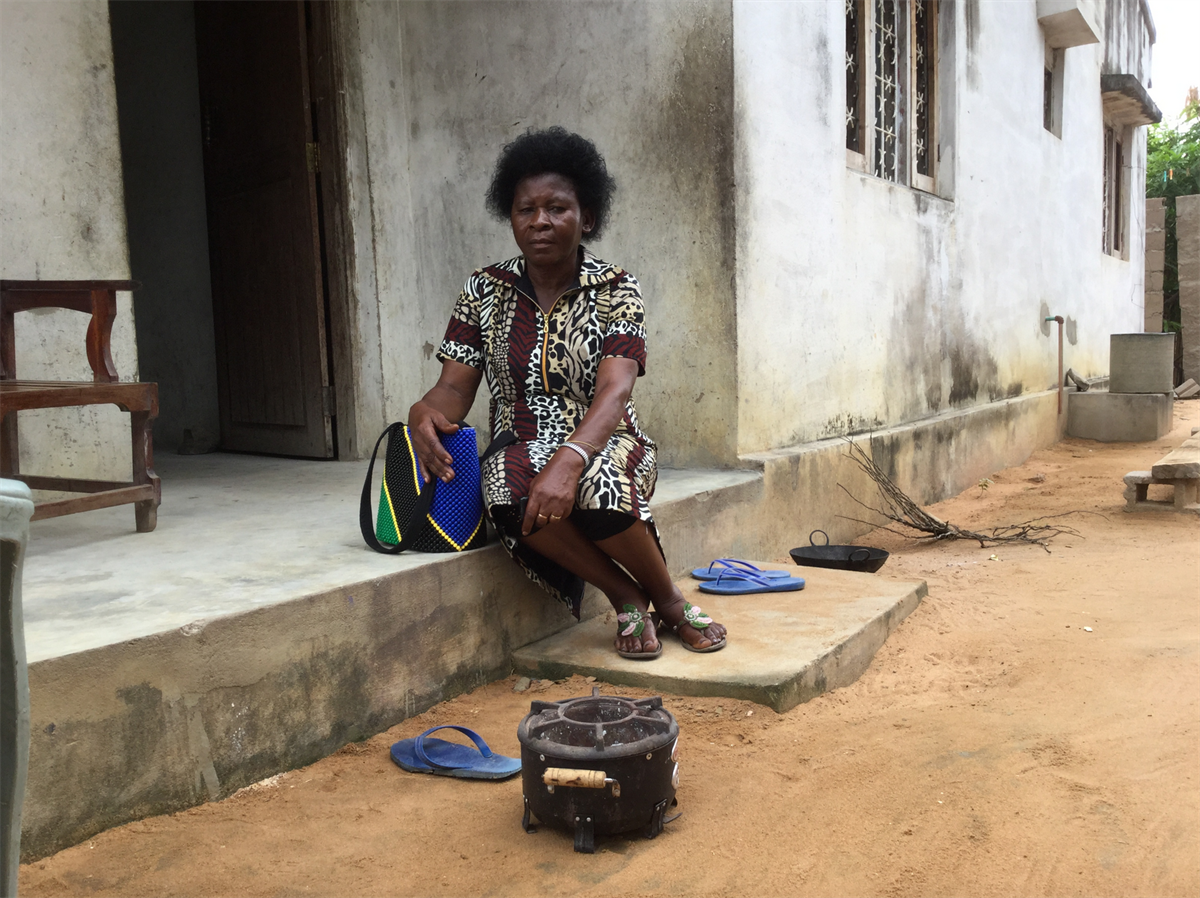
A project organized by AVSI in partnership with the Italian organization Cloros and Carbonsink, and conceived by the University of Florence. The project's main goal is to improve the local population's quality of life and health conditions by distributing cook stoves that are more efficient and less dangerous. These stoves reduce carbon dioxide emissions caused by the combustion of coal, which, in countries like Africa, can lead to death by toxic gases poisoning.
by Anna Zamboni, Vita.it, 25 March 2016
Agnes is sitting under the gigantic, old Jack Tree that dominates the garden of her home. She takes advantage of the shade created by the large foliage, finding shelter from the strong sunlight that today makes the weather unbearably hot.
She is known as the "Avo do Bairro" or the “Neighborhood Grandmother,” but nobody knows what precisely her age is. When asked how old is she, Agnes simply replies that she has been there since the Jack Tree was planted, which she watched grow large and strong from a tiny seed. Agnes' face betrays her age: she is clearly much older than most of the population in Mozambique, where the average life expectancy is 52.
Nowadays, Agnes lives alone. She recently lost her husband to a disease she does not know what to call, but she still takes care of her 2 children, 4 grandchildren, and 2 great-granddaughters. She also helps care for children in the neighborhood, who become part of her extended family, like those that are often encountered in many parts of Africa. Everybody knows her in Alto Gingone a Pena, a small city on the coast of Mozambique, and many gather in her house to exchange opinions and to chat.
This month the topic of discussion at Agnes's house is the new Improved Cook Stove that Agnes has been using to cook. She was invited to participate in a project organized by AVSI in partnership with the Italian organization Cloros and Carbonsink, and conceived by the University of Florence. The project's main goal is to improve the local population's quality of life and health conditions by distributing cook stoves that are more efficient and less dangerous. These stoves reduce carbon dioxide emissions caused by the combustion of coal, which, in countries like Africa, can lead to death by toxic gases poisoning.
Getting sick from food preparation seems unusual, but every year 4.3 million people die prematurely from having breathed in substances produced from wood and charcoal combustion in closed or non-ventilated spaces. This tragedy is due to the fact that approximately 1.3 billion people, almost 20% of the world population, have no access to electricity, and 2.6 billion do not have access to appropriate appliances for clean cooking.
To develop a sustainable solution for the problem, AVSI is distributing Improved Cook Stoves, also called ICS, to 35,000 people living in large slums on the outskirts of Maputo and Pemba. Improved Cook Stoves are designed to reduce fuel consumption per meal and to curb smoke emissions from open fires inside dwellings. In this project, AVSI is partnering with the Italian organization Cloros and Carbonsink, which sells carbon credits, and has invested in the deployment project-sale of hobs (increasing profit and reaching new markets). As a result, the local population has seen improvements in health conditions, in addition to environmental and economic benefits.
“Before I had this new stove, a bag of coal would only last three weeks when cooking for my whole family,” remembers Agnes. “Now, the same bag of coal lasts a month and two weeks.”
Agnes now is able to save $15 per month, enough money to buy and install in her garden a small tank where she saves water to be used during droughts and to plant a new small Jack Tree, near her big and ancient one.